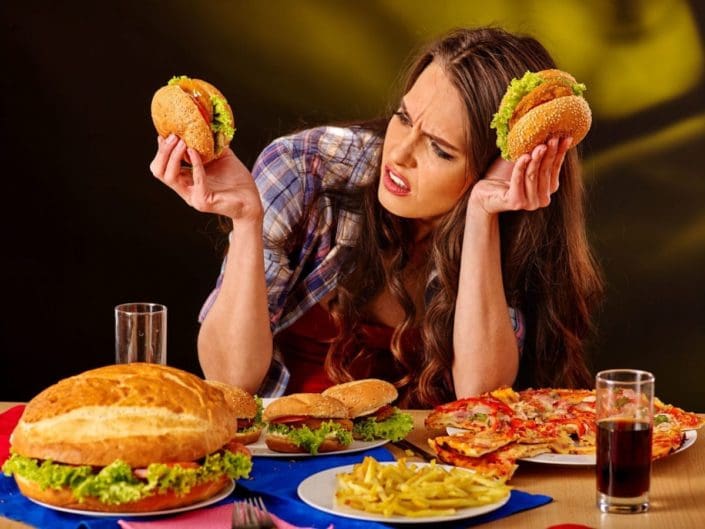Weight loss: Gain control of emotional eating
All Credits Go To : Mayo Clinic Staff
Sometimes the strongest food cravings hit when you're at your weakest point emotionally. You may turn to food for comfort — consciously or unconsciously — when facing a difficult problem, feeling stressed or even feeling bored.
Emotional eating can sabotage your weight-loss efforts. It often leads to eating too much — especially too much of high-calorie, sweet and fatty foods. The good news is that if you're prone to emotional eating, you can take steps to regain control of your eating habits and get back on track with your weight-loss goals.

How the mood-food-weight loss cycle works
Emotional eating is eating as a way to suppress or soothe negative emotions, such as stress, anger, fear, boredom, sadness and loneliness. Major life events or, more commonly, the hassles of daily life can trigger negative emotions that lead to emotional eating and disrupt your weight-loss efforts. These triggers might include: 
- Relationship conflicts
- Work or other stressors
- Fatigue
- Financial pressures
- Health problems

Although some people eat less in the face of strong emotions, if you're in emotional distress you might turn to impulsive or binge eating, quickly consuming whatever's convenient without enjoyment.
In fact, your emotions can become so tied to your eating habits that you automatically reach for a treat whenever you're angry or stressed without thinking about what you're doing.
Food also serves as a distraction. If you're worried about an upcoming event or stewing over a conflict, for instance, you may focus on eating comfort food instead of dealing with the painful situation.
Whatever emotions drive you to overeat, the end result is often the same. The effect is temporary, the emotions return and you likely then bear the additional burden of guilt about setting back your weight-loss goal. This can also lead to an unhealthy cycle — your emotions trigger you to overeat, you beat yourself up for getting off your weight-loss track, you feel bad and you overeat again.
How do you get back on track?
When negative emotions threaten to trigger emotional eating, you can take steps to control cravings. To help stop emotional eating, try these tips:
- Keep a food diary. Write down what you eat, how much you eat, when you eat, how you're feeling when you eat and how hungry you are. Over time, you might see patterns that reveal the connection between mood and food.
- Tame your stress. If stress contributes to your emotional eating, try a stress management technique, such as yoga, meditation or deep breathing.
- Have a hunger reality check. Is your hunger physical or emotional? If you ate just a few hours ago and don't have a rumbling stomach, you're probably not hungry. Give the craving time to pass.
- Get support. You're more likely to give in to emotional eating if you lack a good support network. Lean on family and friends or consider joining a support group.
- Fight boredom. Instead of snacking when you're not hungry, distract yourself and substitute a healthier behavior. Take a walk, watch a movie, play with your cat, listen to music, read, surf the internet or call a friend.
- Take away temptation. Don't keep hard-to-resist comfort foods in your home. And if you feel angry or blue, postpone your trip to the grocery store until you have your emotions in check.
- Don't deprive yourself. When trying to lose weight, you might limit calories too much, eat the same foods repeatedly and banish treats. This may just serve to increase your food cravings, especially in response to emotions. Eat satisfying amounts of healthier foods, enjoy an occasional treat and get plenty of variety to help curb cravings.
- Snack healthy. If you feel the urge to eat between meals, choose a healthy snack, such as fresh fruit, vegetables with low-fat dip, nuts or unbuttered popcorn. Or try lower calorie versions of your favorite foods to see if they satisfy your craving.
- Learn from setbacks. If you have an episode of emotional eating, forgive yourself and start fresh the next day. Try to learn from the experience and make a plan for how you can prevent it in the future. Focus on the positive changes you're making in your eating habits and give yourself credit for making changes that'll lead to better health.

When to seek professional help
If you've tried self-help options but you still can't control emotional eating, consider therapy with a mental health professional. Therapy can help you understand why you eat emotionally and learn coping skills. Therapy can also help you discover whether you have an eating disorder, which can be connected to emotional eating.



Comments
0 Comments